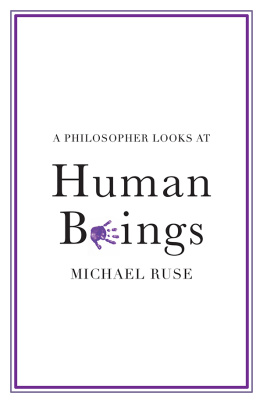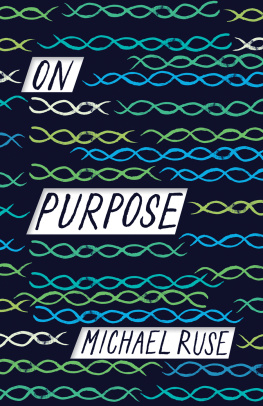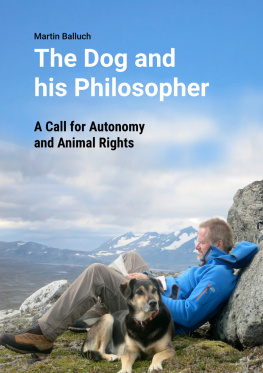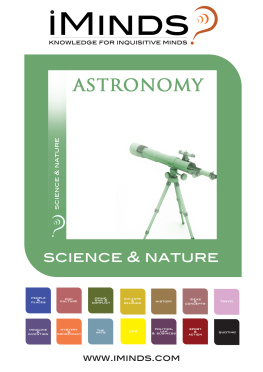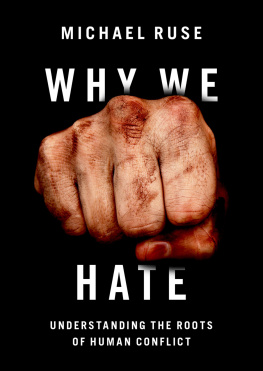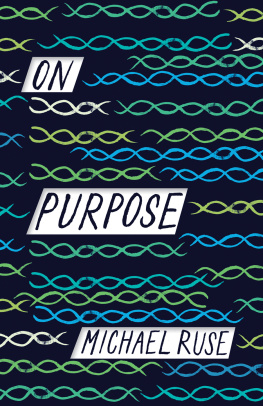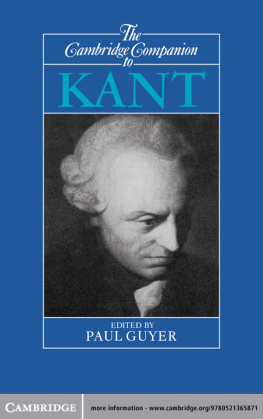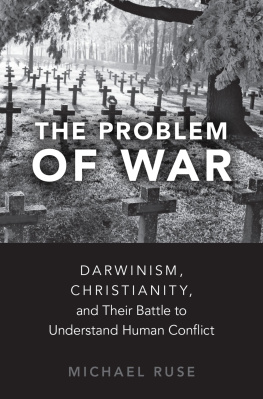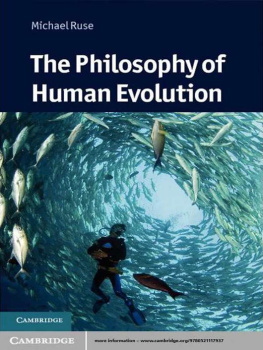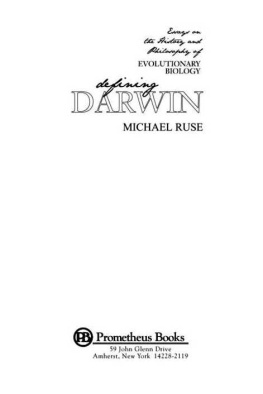Ruse - A Philosopher Looks at Human Beings
Here you can read online Ruse - A Philosopher Looks at Human Beings full text of the book (entire story) in english for free. Download pdf and epub, get meaning, cover and reviews about this ebook. year: 2021, publisher: Cambridge University Press, genre: Religion. Description of the work, (preface) as well as reviews are available. Best literature library LitArk.com created for fans of good reading and offers a wide selection of genres:
Romance novel
Science fiction
Adventure
Detective
Science
History
Home and family
Prose
Art
Politics
Computer
Non-fiction
Religion
Business
Children
Humor
Choose a favorite category and find really read worthwhile books. Enjoy immersion in the world of imagination, feel the emotions of the characters or learn something new for yourself, make an fascinating discovery.
A Philosopher Looks at Human Beings: summary, description and annotation
We offer to read an annotation, description, summary or preface (depends on what the author of the book "A Philosopher Looks at Human Beings" wrote himself). If you haven't found the necessary information about the book — write in the comments, we will try to find it.
Ruse: author's other books
Who wrote A Philosopher Looks at Human Beings? Find out the surname, the name of the author of the book and a list of all author's works by series.
A Philosopher Looks at Human Beings — read online for free the complete book (whole text) full work
Below is the text of the book, divided by pages. System saving the place of the last page read, allows you to conveniently read the book "A Philosopher Looks at Human Beings" online for free, without having to search again every time where you left off. Put a bookmark, and you can go to the page where you finished reading at any time.
Font size:
Interval:
Bookmark:

A Philosopher Looks at Human Beings
Why do we think ourselves superior to all other animals? Are we right to think so? In this book, Michael Ruse explores these questions in religion, science, and philosophy. Some people think that the world is an organism and that humans, as its highest part, have a natural value (this view appeals particularly to people of religion). Others think that the world is a machine and that we therefore have responsibility for making our own value judgments (including judgments about ourselves). Ruse provides a compelling analysis of these two rival views and the age-old conflict between them. In a wide-ranging and fascinating discussion, he draws on Darwinism and existentialism to argue that only the view that the world is a machine does justice to our humanity. This new series offers short and personal perspectives by expert thinkers on topics that we all encounter in our everyday lives.
Michael Ruse is the former Lucyle T. Werkmeister Professor of Philosophy at Florida State University. Over his fifty-year career he has authored and co-edited over sixty books on topics ranging from the history and philosophy of science, especially evolutionary biology, to the philosophy of religion. They include Can a Darwinian Be a Christian? (Cambridge, 2001), The Gaia Hypothesis: Science on a Pagan Planet (2013), and A Meaning to Life (2019).
In this series, philosophers offer a personal and philosophical exploration of a topic of general interest.
A Philosopher Looks at Human Beings
Michael Ruse


University Printing House, Cambridge CB2 8BS, United Kingdom
One Liberty Plaza, 20th Floor, New York, NY 10006, USA
477 Williamstown Road, Port Melbourne, VIC 3207, Australia
314321, 3rd Floor, Plot 3, Splendor Forum, Jasola District Centre, New Delhi 110025, India
79 Anson Road, #0604/06, Singapore 079906
Cambridge University Press is part of the University of Cambridge.
It furthers the Universitys mission by disseminating knowledge in the pursuit of education, learning, and research at the highest international levels of excellence.
www.cambridge.org
Information on this title: www.cambridge.org/9781108820431
DOI: 10.1017/9781108907057
Michael Ruse 2021
This publication is in copyright. Subject to statutory exception and to the provisions of relevant collective licensing agreements, no reproduction of any part may take place without the written permission of Cambridge University Press.
First published 2021
Printed in the United Kingdom by TJ Books Limited, Padstow Cornwall
A catalogue record for this publication is available from the British Library.
ISBN 978-1-108-82043-1 Paperback
Cambridge University Press has no responsibility for the persistence or accuracy of URLs for external or third-party internet websites referred to in this publication and does not guarantee that any content on such websites is, or will remain, accurate or appropriate.
For my son Oliver
and all the other first responders during the coronavirus pandemic
Over the years, many people have helped me to develop the ideas expressed in this essay. Edward O. Wilson, at Harvard University, has been both friend and support, and his enthusiasm for ideas has long been an inspiration. Robert J. Richards, at the University of Chicago, and I have long shared an interest in the development of nineteenth-century evolutionary thought. Joe Cain, at University College London, and I have long shared an interest in the development of twentieth-century evolutionary thought. I often disagree with all three of these men. They have taught me what every philosopher comes to realize. You learn most from those who challenge your ideas. Mirroring the wonderful help and encouragement I got from older scholars when I was young, one of the greatest joys of my life has been passing on the torch from my generation to the next. I have been co-editing the Cambridge Elements series in the Philosophy of Biology with the much-younger Grant Ramsey, at Leuven University in Belgium. I am hugely grateful for his comments on this essay.
My editor at Cambridge University Press, Hilary Gaskin, is far more than just a professional acquaintance. I am much in her debt for all that she has done for me and for asking me to write this essay. I thank also my content manager Thomas Haynes and my copy-editor Steven Holt. As an author, I am always so grateful to the people who help turn my manuscript into a published book. Closer to home, I thank William and Lucyle Werkmeister for their endowment of my professorship at Florida State University and for the research funds that go with it. My love for my wife Lizzie, and my gratitude for her never-failing support, cannot be put into words.
The information in
I am a human being. What do I, as a philosopher, have to say about this? If I were a physiologist, I would be interested in what makes us tick how the various parts of the body interact and work together. If I were a sociologist, I would be interested in humans in groups why are there churches and priests and imams and that sort of thing? I am a philosopher, so what am I interested in and why do I have special authority or knowledge to speak about such things? Well pick up on the second part of the question as we go along the proof of the pudding is in the eating but Ill tell you what I am interested in. Why do we humans think we are so special? Do we have good reason for this, or is it just self-deception based on ignorance and arrogance or (perhaps) a fear that we are not so very special?
Let me speak for myself. I once spent a week in Zimbabwe, and I must confess that I came away with a liking for warthogs. They are certainly not the worlds most beautiful animals, but perhaps that was part of the attraction. Out on safari cameras not guns! you would see them trotting along in their families, quite content. As the father of five kids, that appealed to me right there. And they werent afraid. They would come right up to the Victoria Falls Hotel the one that King George and Queen Elizabeth stayed in during their trip to Southern Africa in 1947 and graze contentedly in the grounds. But my liking is accompanied with a kind of smugness. Truly, we humans are not as other animals, or rather there are no other animals comparable with us humans and we are at the top. Warthogs are just fine, but they should know their place. They do not belong at the high table in a comfortable armchair, looking out across at the Falls, sipping a gin and tonic, boring my wife to tears as I go on about the Royal Family. If you disapprove of them so much, why do you keep talking about them?
Am I justified in thinking this about my high status? Try to discount the fact that, like all philosophers, I think I am superior to all others. The brightest people on campus. Return to reality. I love my cairn terriers Scruffy McGruff and Duncan Donut more than a lot of humans. But truly, other than my late headmaster, of whom I am prepared to think any ill a sentiment fully reciprocated I dont think my dogs are the equals of other humans. Thats not just the prejudice of an Englishman against the Scots. Its a question of status, of value, of worth. So much so, that when I am confronted with an appallingly awful human being like Jeffrey Dahmer, the murderer, who not only preferred to have (gay) sex with his victims after (rather than before) they were dead but who used to cut them up and eat them my first inclination is to say that such people are not real human beings. They are inhuman.
Font size:
Interval:
Bookmark:
Similar books «A Philosopher Looks at Human Beings»
Look at similar books to A Philosopher Looks at Human Beings. We have selected literature similar in name and meaning in the hope of providing readers with more options to find new, interesting, not yet read works.
Discussion, reviews of the book A Philosopher Looks at Human Beings and just readers' own opinions. Leave your comments, write what you think about the work, its meaning or the main characters. Specify what exactly you liked and what you didn't like, and why you think so.

